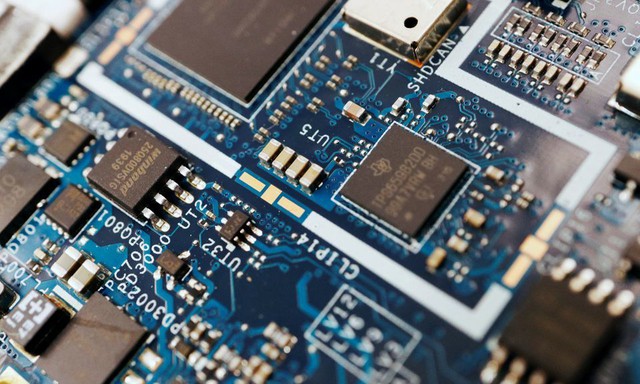Viet Nam among Top 4 Asian markets leading U.S. chip diversification
VGP - Viet Nam has emerged as one of four winners as the U.S. has significantly increased its import of chip products since the beginning of the year, according to data released by the U.S. Census Bureau.

Illustration photo
The list of Top 4 Asian markets includes Thailand, Viet Nam, India, and Cambodia.
February alone witnessed its chip imports rise by 17 percent to US$4.86 billion year on year, of which imports from Asia accounted for 83 percent of the total.
Most notably, imports from India saw an unprecedented growth, with the turnover increasing 34 times to reach US$152 million.
Imports from Cambodia also rose impressively by nearly seven times to achieve a figure just slightly higher than the import turnover of US$166 million from Japan, the traditional chip manufacturing market.
Viet Nam and Thailand, which both have much bigger slices of the chipmaking market, increased their US trade in the sector by 75 percent and 62 percent, respectively. Viet Nam has accounted for over 10 percent of US imports for seven straight months.
These signs indicate that the U.S. has been diversifying its electronics supply chain by shifting manufacturers from traditional markets to emerging markets.
Meanwhile, Malaysia, one of the world's leading factories in chip packaging, continues to top the list of chip suppliers to the US. However, its market share fell to 20 percent of total U.S. imports in February.
Prime Minister Pham Minh Chinh tasked the Ministry of Planning and Investment to draft a resolution and a program on chip production while presiding over the Cabinet meeting in Ha Noi on Monday.
Viet Nam has become a centre of the semiconductor industry as Samsung announced its plan to produce semiconductors from July next year with an additional investment of US$920 million.
The country is also home to Intel's largest assembly and testing factory with an investment of US$ 1.5 billion./.
